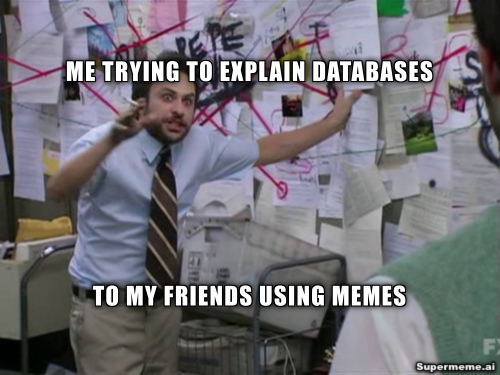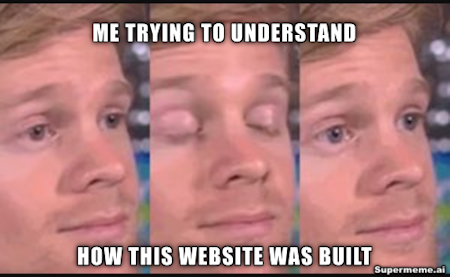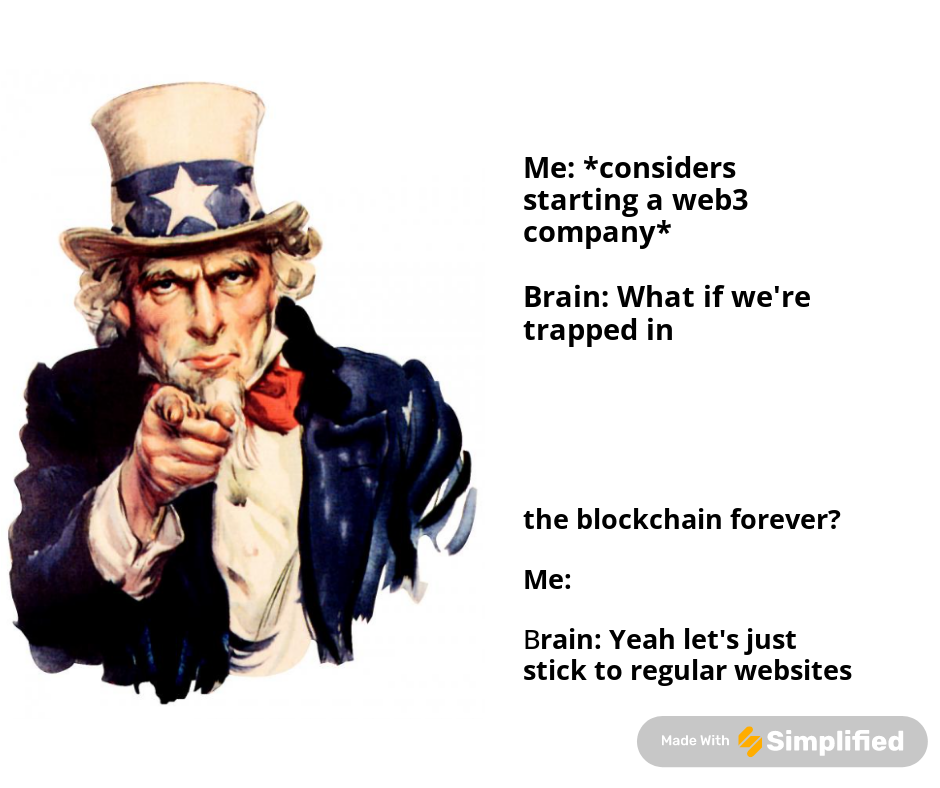Navigating the Web3 vs. Blockchain Conundrum: A Decision-Maker's Dilemma Unraveled

Following my last blog: What is Web3?, let us look at embarking on the journey to launch a Web3 startup centred on blockchain holds promise and potential for those bold enough to seize the opportunity. As Eddie Ennison wisely said, "When opportunity presents itself, don't be afraid to go after it."
Venturing into the Web3 space isn't a walk in the park—it's a thrilling yet challenging endeavour that requires a departure from conventional tech approaches. It signifies an iterative leap forward, ushering in a new era of problem-solving methodologies and mindset shifts. Web3 isn't just about technology; it's about control, equity, and ownership—a paradigm shift echoing the driving forces of Web2.
The future belongs to the pioneers of Web3—companies dedicated to cultivating vibrant communities and interconnected ecosystems. In this decentralized landscape, community empowerment fuels commerce, ushering in a new era of ownership and collaboration. So, are you ready to embark on this transformative journey and carve your niche in the Web3 universe?
The question looms large in the minds of decision-makers: "Do we dive into web3 or stick with blockchain?" It's a conundrum that demands careful consideration, especially for established entities. Venturing into web3 isn't a decision to be taken lightly. For startups addressing present-day challenges, the nascent nature of web3 technology coupled with its limited user adoption makes it a risky endeavor. With high customer acquisition costs and uncertain outcomes, the gamble might not pay off.
However, for organizations with a solid customer base seeking to foster loyalty and drive long-term value, embracing web3 holds immense potential. By leveraging web3, companies can cultivate vibrant communities and incentivize customer engagement. Take Nike's ".Swoosh" platform, for instance, a prime example of how web3 technologies can transform brand-consumer relationships. Delve deeper into this fascinating case study here: https://medium.com/3mint/case-study-nike-swoosh-125cabfaf205
In the ever-evolving landscape of technology, the decision to venture into web3 or blockchain isn't just about staying ahead of the curve—it's about making strategic choices that align with your organization's goals and capabilities. So, as you stand at this crossroads, weigh your options carefully and chart a course that leads to innovation and growth.
Navigating Web 3.0: Breaking Down the Barriers
So, what's impeding the widespread adoption of Web 3.0? Let's dissect the challenges. Firstly, there's the issue of trust, thanks to the negative press surrounding cryptocurrencies and NFTs. With various scams lurking in the shadows, users are understandably wary.
Then, there's the regulatory landscape—or lack thereof. The slow pace of regulatory adaptation to the rapid technological advancements adds layers of uncertainty for companies vying to attract users to their platforms.
On the tech front, blockchain transactions come at a cost, both in terms of money and speed. Transaction fees, or "gas," can add up quickly, while the sluggish nature of blockchain transactions hampers efficiency.
But fear not, pragmatic pioneers! Enter Level 1 (L1) and Level 2 (L2) protocols. L1 forms the foundation of the blockchain, while L2 steps in to bolster scalability and functionality through innovative solutions like sidechains and state channels.
While the path to Web 3.0 may seem daunting, overcoming these obstacles brings us closer to a digital landscape ripe with potential. So, let's roll up our sleeves and tackle these challenges head-on.
What Are the opportunities out there?
There are a lot of opportunities in the web3 space facilitated by smart contracts. In this blog post, I’ll highlight a few of them.
DeFi
DeFi—Decentralized Finance—a true game-changer in the financial landscape. DeFi applications harness smart contracts to recreate traditional financial services, from money markets to exchanges, with a twist. These innovative platforms not only replicate conventional offerings but also fuse various services to create novel financial structures. Imagine the possibilities when smart contracts seamlessly manage user funds, executing transactions with precision based on predefined criteria. It's a revolution in the making, and the opportunities are endless.
Web3 Gaming
Web3 gaming relies on NFTs, fostering unique in-game economies. Players can own, trade, and lend assets, earn through gameplay, and engage in decentralized finance. Utilizing smart contracts, these systems enable automated transactions, leveraging blockchain technology for seamless interactions.

SocialFi
SocialFi revolves around content creators, influencers, and users seeking enhanced data control, free expression, and opportunities to monetize their social media presence. Monetization occurs through cryptocurrencies, while identity and digital ownership are managed using nonfungible tokens (NFTs).


